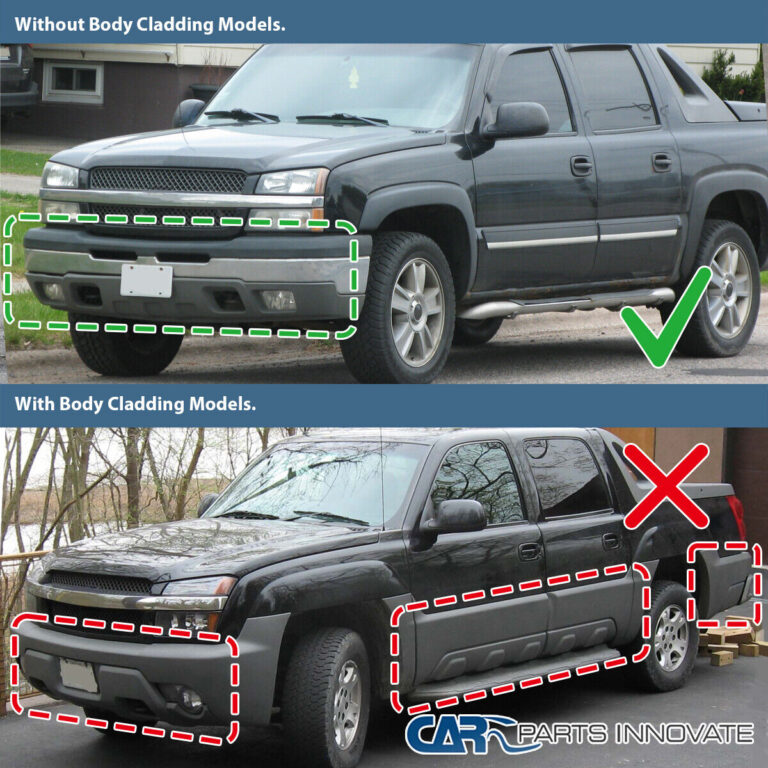Are Chevy Silverados Reliable?
“`html
Thinking about buying a Chevy Silverado? You’re probably wondering, are Chevy Silverados reliable? It’s a valid question, because nobody wants to drop serious cash on a truck that’s going to spend more time in the shop than on the road.
Chevy Silverado Reliability: What You Need to Know
Let’s cut straight to the chase about Chevy Silverado reliability, based on real-world data and owner experiences.
Digging into Silverado’s Dependability
When it comes to truck reliability, there are a few key things to consider.
- Engine Longevity: How long will the engine last before needing major repairs? Think about the engine options – the 5.3L V8, the 6.2L V8, the 2.7L Turbo, or the Duramax diesel. Each has its own track record.
- Transmission Performance: A smooth and reliable transmission is crucial. Issues here can lead to costly repairs.
- Overall Build Quality: How well is the truck put together? Are there common problems with rust, electrical issues, or interior components?
- Repair Costs: When things do break (and they will, eventually), how much will it cost to fix them? Parts availability and labor rates matter.
Silverado’s Reliability Track Record
So, how does the Chevy Silverado stack up? Well, it’s a mixed bag, let’s be real. Some years are better than others. You’ll find people who swear by their Silverados, claiming they’ve run flawlessly for hundreds of thousands of miles. Then you’ll find others who’ve had nothing but headaches.
Consumer Reports, for example, can give you a general idea, but their data is based on surveys, which can be subjective. J.D. Power also provides reliability ratings, but remember to consider the methodology behind their scores.
Let’s be specific. Some years of the Silverado have been plagued with issues related to the Active Fuel Management (AFM) or Dynamic Fuel Management (DFM) systems, leading to oil consumption problems. Others have had reported issues with the transmission. On the other hand, certain model years, especially those with simpler engine designs, tend to be more reliable.
Pro Tip: Before you buy a used Silverado, check online forums and owner reviews specific to the model year you’re considering. See what common problems people are reporting. This can give you a heads-up on potential issues to watch out for.
Factors Affecting Silverado Reliability
The reliability of any vehicle, including the Chevy Silverado, isn’t just about the truck itself. It’s also about how it’s used and maintained.
- Maintenance Matters: Regular oil changes, fluid checks, and timely repairs are crucial for keeping any vehicle running smoothly.
- Driving Habits: Are you constantly towing heavy loads? Do you drive aggressively? This can put extra strain on the engine and transmission.
- Environment: Do you live in a region with harsh winters and salted roads? This can accelerate rust and corrosion.
For example, if you consistently tow heavy equipment and neglect scheduled maintenance, even the most reliable Silverado will eventually have problems.
Common Silverado Problems to Watch Out For
Okay, so what are some of the specific issues you might encounter with a Chevy Silverado?
- AFM/DFM Issues: As mentioned earlier, oil consumption can be a problem in some model years due to the Active Fuel Management or Dynamic Fuel Management systems.
- Transmission Problems: Some owners have reported issues with hard shifting, slipping, or complete transmission failure, especially in the 8-speed transmissions.
- Electrical Gremlins: Keep an eye out for electrical problems, such as issues with the infotainment system, sensors, or wiring harnesses.
- Rust: In areas with heavy salt use, rust can be a concern, particularly on the frame and underbody.
Tips for Ensuring Silverado Longevity
Want to maximize the lifespan of your Chevy Silverado?
- Stick to the Maintenance Schedule: Follow the manufacturer’s recommended maintenance schedule religiously. Don’t skip oil changes or other important services.
- Consider an AFM/DFM Delete: If you’re concerned about oil consumption, research AFM/DFM delete kits. These disable the cylinder deactivation system, potentially improving engine longevity.
- Maintain the Transmission: Have the transmission fluid changed regularly, especially if you tow frequently.
- Address Issues Promptly: Don’t ignore warning signs. If you notice a strange noise, a leak, or any other problem, get it checked out by a qualified mechanic ASAP.
Ultimately, determining are Chevy Silverados reliable depends on the specific model year, how well it’s maintained, and how it’s used.
“`  “`html
“`html
So, you’re eyeballing a Chevy Silverado, huh? And you’re wondering, are Chevy Silverados reliable? Smart move. Let’s dive deeper.
Decoding Chevy Silverado Reliability Ratings
Forget the marketing fluff. We need to break down what “reliability” really means for a truck like the Silverado. It’s not just about whether it starts in the morning (though that’s a big plus!). It’s about long-term dependability, minimizing those unexpected repair bills, and keeping your workhorse on the road.
Understanding the Data Behind Silverado Dependability
Those reliability ratings from Consumer Reports and J.D. Power? Take them with a grain of salt. They’re useful, but they’re not the whole story.
- Consumer Reports: Relies on owner surveys. It’s a good overview, but can be skewed by subjective experiences. One person’s minor annoyance is another’s major problem.
- J.D. Power: Measures problems per 100 vehicles (PP100). Lower score = better reliability. Still, it’s a snapshot in time and doesn’t always predict long-term durability.
- Real-World Owner Reviews: Dig into Silverado forums and Facebook groups. See what actual owners are saying about their trucks. This is where you’ll find the nitty-gritty details.
Remember, averages can be deceiving. One model year might have stellar ratings, while another is a total disaster. Always focus on the specific year and engine configuration you’re considering.
Silverado Engine Options and Their Reliability Profiles
The heart of any truck is its engine. The Silverado offers a range of options, each with its own strengths and weaknesses when it comes to reliability.
- 5.3L V8: A popular choice, but some years have issues with AFM/DFM leading to oil consumption. Still, many owners report high mileage with proper maintenance.
- 6.2L V8: More powerful, but similar AFM/DFM concerns. Can be more expensive to repair.
- 2.7L Turbo: A newer engine, so long-term reliability is still being assessed. Some reports of turbo issues.
- 3.0L Duramax Diesel: Known for its fuel efficiency and smooth power delivery. Generally considered a reliable diesel engine.
Do your research on the specific engine you’re interested in. Check for common problems and potential repair costs.
Transmission Troubles? Silverado’s Gearbox Reliability
A smooth-shifting, reliable transmission is essential for any truck. Unfortunately, the Silverado has had some transmission woes in recent years.
- 8-Speed Transmission: Some owners have reported hard shifting, shuddering, and even complete failure. This seems to be more common in certain model years.
- 10-Speed Transmission: Generally considered more reliable than the 8-speed.
If you’re looking at a Silverado with an 8-speed transmission, be extra cautious. Ask about its service history and listen for any unusual noises or behavior during a test drive.
Tackling Silverado Rust Issues: Protecting Your Investment
Rust is a killer. Especially in areas with salted roads. The Silverado is not immune.
- Frame Rust: A major concern, especially on older models. Inspect the frame carefully for any signs of corrosion.
- Body Panel Rust: Check around wheel wells, door bottoms, and other vulnerable areas.
Consider rustproofing treatments if you live in a snowy or salty environment. Regular washing and undercarriage cleaning can also help prevent rust.
Beyond the Basics: Other Potential Silverado Problems
It’s not just about engines and transmissions. Other issues can crop up with the Silverado.
- Electrical Problems: Keep an eye out for issues with the infotainment system, sensors, and wiring harnesses.
- Infotainment System Glitches: Some owners have reported problems with the touchscreen, Bluetooth connectivity, and other features.
- Sensor Failures: Faulty sensors can trigger warning lights and affect engine performance.
These issues may not be as catastrophic as a blown engine, but they can still be annoying and costly to fix.
The Importance of Preventative Maintenance for Silverado Reliability
Listen, no matter how “reliable” a truck is supposed to be, it needs proper care. Skimp on maintenance, and you’re asking for trouble.
- Regular Oil Changes: Use the recommended oil and filter, and change it on schedule (or even more frequently if you tow or drive in harsh conditions).
- Fluid Checks: Keep an eye on all fluid levels, including coolant, brake fluid, power steering fluid, and transmission fluid.
- Timely Repairs: Don’t ignore warning signs. Address any problems promptly before they escalate.
Think of maintenance as an investment. It will pay off in the long run by keeping your Silverado running smoothly and preventing costly repairs.
Used Silverado Shopping: Key Inspection Points
Buying a used Silverado? Do your homework. A thorough inspection is crucial.
- Check the Vehicle History Report: Look for accidents, title issues, and any major repairs.
- Inspect the Engine: Listen for unusual noises, check for leaks, and examine the oil for any signs of contamination.
- Test Drive the Truck: Pay attention to how the transmission shifts, how the brakes feel, and how the truck handles overall.
- Get a Pre-Purchase Inspection: Have a qualified mechanic inspect the truck before you buy it. They can identify potential problems that you might miss.
Don’t be afraid to walk away if something doesn’t feel right. There are plenty of other Silverados out there.
Modifications and Their Impact on Silverado Longevity
Thinking about lifting your Silverado, adding bigger tires, or installing a performance tuner? Be careful. Modifications can affect reliability.
- Lift Kits: Can put extra stress on suspension components and driveline.
- Performance Tuners: Can void your warranty and potentially damage the engine or transmission.
- Oversized Tires: Can affect fuel economy and put extra strain on the drivetrain.
If you’re going to modify your Silverado, do it responsibly. Choose quality parts and have them installed by a qualified professional. And be aware of the potential impact on reliability.
Comparing Silverado Reliability to Other Trucks
How does the Silverado stack up against its rivals, like the Ford F-150 and Ram 1500? It’s a competitive market, and each truck has its pros and cons.
- Ford F-150: Known for its innovative features and aluminum body. Can have its own set of reliability issues, depending on the engine and model year.
- Ram 1500: Offers a comfortable ride and stylish interior. Some owners have reported electrical problems.
Ultimately, the best truck for you depends on your individual needs and preferences. Research all your options carefully and choose the one that best fits your budget and lifestyle.
FAQ: Chevy Silverado Reliability
Still have questions about Silverado reliability? Let’s tackle some frequently asked questions.
- What’s the most reliable Chevy Silverado year? It varies, but generally, years with simpler engine designs and fewer AFM/DFM issues tend to be more reliable. Research specific model years.
- How many miles can a Chevy Silverado last? With proper maintenance, many Silverados can last for 200,000 miles or more.
- Are Silverado repair costs high? It depends on the type of repair. Some repairs can be relatively inexpensive, while others (like engine or transmission work) can be costly.
- Is the Silverado a good truck for towing? Yes, the Silverado is a capable truck for towing, but be sure to choose the right engine and configuration for your needs. Also, maintain it well.
So, to circle back to the original question, are Chevy Silverados reliable? The answer is nuanced. With careful research, diligent maintenance, and a bit of luck, you can find a Silverado that will serve you well for years to come.
“““json
“`



